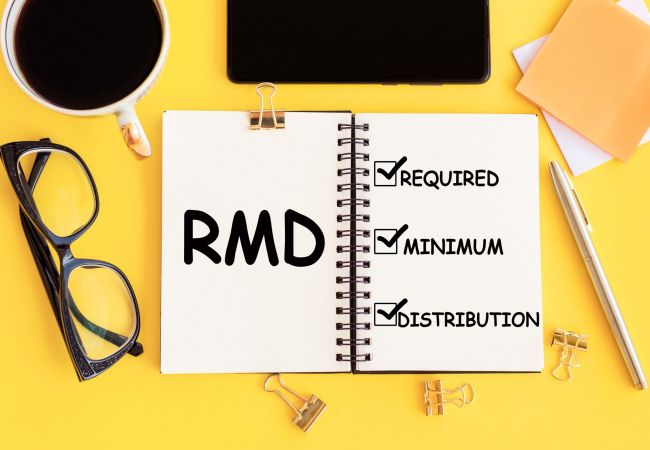- Ed Slott’s IRA Corner
- Avoid Costly IRA Rollover Mistakes
Avoid Costly IRA Rollover Mistakes

Rolling over an IRA can be a smart financial move, whether you’re changing jobs, consolidating retirement accounts, or inheriting an IRA from a spouse. However, rollovers come with complex rules, and making a mistake can lead to unexpected taxes, penalties, and loss of retirement savings. To help you navigate the process, here are ten of the most common IRA rollover mistakes and how to avoid them.
First 5 Costly IRA Rollover Mistakes (click here for video summary)
- IRA-to-IRA and Roth IRA-to-Roth IRA Rollovers
One of the most significant mistakes individuals make is using a 60-day rollover instead of a direct transfer. This method increases the risk of missing the deadline and facing unnecessary taxes. Additionally, many don’t realize the once-per-year rollover rule applies to all IRAs and Roth IRAs combined, not just individual accounts. Since the IRS has no authority to fix these errors, it’s crucial to understand the rules before initiating a rollover.
- Non-Spouse Beneficiary Rollovers
Unlike spouses, non-spouse beneficiaries cannot roll an inherited IRA into their own account. Taking a lump-sum distribution instead of setting up an inherited IRA can result in significant tax consequences. Additionally, placing inherited IRA funds into a personal IRA or incorrectly distributing assets to a trust can cause significant financial setbacks.
- Spousal Rollovers
Spouses who inherit an IRA have rollover options, but timing is critical. Failing to roll over the funds at 59½ could limit tax advantages. Another common mistake is forgetting to name a successor beneficiary, which can create complications for heirs.
- 401(k) Rollovers to IRAs
Many individuals assume rolling a 401(k) into an IRA is always the best option, but failing to consider all choices—such as leaving funds in the employer plan—can be a mistake. Additionally, receiving a distribution personally triggers a mandatory 20% withholding and could lead to unexpected taxes. Ignoring the Net Unrealized Appreciation (NUA) tax break when rolling over company stock or mishandling after-tax contributions are also common pitfalls.
Next 5 Costly IRA Rollover Mistakes
- After-Tax Rollovers From Employer Plans to IRAs and Roth IRAs
After-tax contributions in a 401(k) can be rolled into a Roth IRA tax-free, but many fail to take advantage of this strategy. Instead, they roll after-tax funds into a traditional IRA, where future withdrawals are taxed. Misallocating pre-tax and after-tax funds or choosing to receive all funds personally can lead to unintended tax burdens.
- Roth Conversions (IRA-to-Roth IRA Rollovers)
While converting an IRA to a Roth IRA can provide long-term tax benefits, it can also trigger higher taxable income in the conversion year. Failing to account for the impact on tax brackets, plus missing required minimum distribution (RMD) rules are most common. Then there’s converting ineligible accounts—such as a SIMPLE IRA within the first two years which is also a frequent errors. Additionally, while company plan assets can be converted, inherited IRAs cannot be transferred into a Roth IRA.
- In-Plan Roth Rollovers (401(k) to Roth 401(k) Conversions)
Not all employer plans allow for in-plan Roth conversions, so assuming it’s an option without confirming can be a mistake. Failing to estimate the tax impact or neglecting to explore whether a Roth IRA conversion is a better alternative can also result in financial missteps.
- 60-Day Rollovers and Missed Deadlines
A rollover must be completed within 60 days to avoid taxes and penalties, yet many people lose track of this critical deadline. Additionally, they may be unaware of the 20% mandatory withholding on plan distributions. While the IRS allows self-certification for late rollovers in some cases, it’s always best to complete the process correctly the first time. Depositing funds into a non-IRA account or opting for a 60-day rollover instead of a direct transfer can create avoidable tax issues.
- QDRO Rollovers in Divorce
When an ex-spouse is awarded a portion of a retirement plan through a Qualified Domestic Relations Order (QDRO), rolling the funds into an IRA too soon can cause unnecessary penalties. A QDRO distribution taken directly from a plan before age 59½ is exempt from the 10% penalty, but this benefit disappears if the funds are rolled into an IRA first. Additionally, many mistakenly assume QDROs apply to IRAs, when in fact, they only apply to employer-sponsored plans.
- Rolling Over IRA Funds Back to an Employer Plan
While some employer plans allow rollovers from an IRA back into the plan, individuals often mishandle this process. Rolling over after-tax funds into an employer plan is a mistake, as only pre-tax amounts are eligible. Additionally, failing to convert the remaining IRA after-tax basis into a Roth IRA before rolling over can have consequences. Also, ignoring plan-specific withdrawal rules can lead to unintended restrictions on accessing funds.
Avoid These Costly Mistakes and Plan Your IRA Rollover Carefully
An IRA rollover can be a powerful financial move, but only if done correctly. A single mistake could mean unnecessary taxes, penalties, and lost retirement savings. To avoid these errors, download our free guide: “Top 10 IRA Rollover Mistakes.” This checklist will give you a deeper look at how to manage your retirement accounts efficiently.
Get Expert Help With Your IRA Rollover
If you need assistance navigating IRA rollover complexities or have questions about your retirement strategy, we’re here to help.
Contact an advisor at RFG Wealth Advisory at 940-464-4104. Set up a free virtual consultation and discuss your concerns regarding IRA Rollovers.
Financial Success Doesn’t Happen by Chance
RFG Wealth Advisory in Argyle, Texas, is an independent, fee-only Registered Investment Advisor committed to putting your best interests first. Our transparent and simple fee structure is easy to understand. All this ensures that your financial success is always our top priority. Call us today! 940-464-4104
Disclaimer
Financial Success Doesn’t Happen by Chance.
Contact lead advisor Chris Robinson with RFG Wealth Advisory in Argyle, Texas to discuss your questions.
RFG Wealth Advisory is an independent, fee-only Registered Investment Advisor firm in Argyle, Texas. At RFG Wealth, our fiduciary duty ensures your interests always come first, and we maintain a transparent fee structure for your peace of mind. Contact us today!
Investment advice is offered through RFG Wealth Advisory, a Registered Investment Advisor.
Schedule a Virtual ConsultationChris Robinson is the managing partner and founder of RFG Wealth Advisory, which he founded in 1995. He is a current resident of Argyle and native of Denton, Texas.
- Chris Robinsonhttps://rfgwealthadvisory.com/author/chris-robinson/
- Chris Robinsonhttps://rfgwealthadvisory.com/author/chris-robinson/
- Chris Robinsonhttps://rfgwealthadvisory.com/author/chris-robinson/
- Chris Robinsonhttps://rfgwealthadvisory.com/author/chris-robinson/
Related Posts
“These materials have been independently produced by RFG Wealth Advisory. RFG Wealth Advisory is independent of, and has no affiliation with, Charles Schwab & Co., Inc. or any of its affiliates (“Schwab”). Schwab is a registered broker-dealer and member SIPC. Schwab has not created, supplied, licensed, endorsed, or otherwise sanctioned these materials nor has Schwab independently verified any of the information in them. RFG Wealth Advisory provides you with investment advice, while Schwab maintains custody of your assets in a brokerage account and will effect transactions for your account on our instruction.”
RFG Wealth Advisory is a registered investment adviser with the U.S. Securities and Exchange Commission (SEC). Registration does not imply a certain level of skill or training, nor is it an endorsement by the SEC or other regulators. RFG Wealth Advisory only provides investment advisory services in jurisdictions where it is registered or qualifies for an exemption. This website is for informational purposes only and does not constitute legal, tax, or accounting advice. For more information, see our Form ADV and Form CRS, available at the bottom of this page.
RFG Wealth Advisory
130 Old Town Blvd., S, Ste. 100
Argyle, TX 76226





